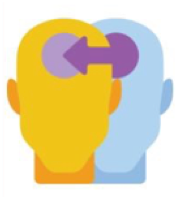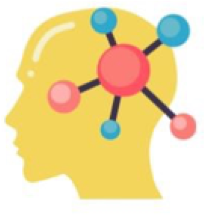I recently had the opportunity to speak with a group of parents whose children are transitioning into a new phase of their learning. I used this as an opportunity to share some key messages for successful learning and thought I would briefly unpack these here.
I should be clear, these messages are adapted from the work of Project Zero. They are identified as the six key messages within a culture of thinking. They are applicable both in the classroom and at home. Indeed one of the fundamental strategies for success is the building of close partnerships between home and school. This partnership is made even more effective when the language of learning that the students receive at school aligns with what they hear at home. Consistent messaging enhances the impact that we might have.
All learning is a consequence of thinking.
If we believe that learning occurs as a result of thinking, then the clear consequence is that we must require our learners to think. We remove the requirement for thinking when we minimise challenge, over scaffold our lessons, focus on rote learning and passive transfer of knowledge. We require our students to think when we engage them with challenging questions, when we inspire wonderment, when the learning connects and extends prior learning and when we ask students to do interesting things with what they know. Teachers and parents who hope to better understand the opportunities they might create for thinking should refer to the understanding map. This outlines eight essential thinking moves which have broad relevance across many learning contexts.
Learning and thinking are collective enterprises.
Learning is not something we do on our own. It occurs within groups of people as they share and elaborate on each other’s ideas. Good ideas do not emerge from the mind of the individual thinking in complete isolation. Even when we are working alone, we are building on the thinking and ideation of those who preceeded us. With this consequence in mind, we should be creating opportunities for collaborative learning, and our learners need to develop the skills that allow them to thrive in this environment.
Learning occurs at the point of challenge.
Think of the student who in Year One learns about dinosaurs. They create a great project and share what they know. In Year Two, they recycle their dinosaur project and do so again in Year Four and Year Six. They are not learning but are achieving false success by regurgitating what they have already learned. Learning is what we do when we don’t know how to do something, and we don’t have a strategy or when we don’t know the answer. This is the point of challenge. Learning at this point should initially seem difficult. We might need help. We could slip towards a fixed mindset and close ourselves off to the learning. The successful learner knows the feeling of being challenged by new learning and knows that they can work through this. They have been here before, and while they may not have a solution for this exact situation, they have strategies for learning and problem solving that they can leverage.
Learning is an active process and it is impossible to learn without emotion.
Learning is not something that can happen without our involvement, nor can it occur if we have no emotional connection to what we are learning. Think of the meeting that you have sat through where your body is present, but your mind is elsewhere. The meeting ends, and little of what was said and none of the details are recalled. The human brain is excellent at shifting in autopilot. The alternate scenario is the meeting where the subject matter was significant to your priorities. The outcome and the details mattered. You had a clear emotional connection to the subject matter, and you were an active participant in the meeting. Now imagine how these scenarios might play out in the classroom. How often are students on autopilot with their body in the classroom but their mind someplace else
Questions drive learning and are outcomes of learning too.
Learning starts when we confront a question, the point where our knowledge or skill reaches a limit. Maybe it is an entirely new question, a problem we have encountered or an entirely new objective. Maybe it is a unique combination of ideas or a task that requires we adapt our skills to achieve a new goal. But more than just finding answers, learning is about finding new questions. Effective learners know that their learning journey moves them from one question to the next. Seekers of deep learning know that this pattern repeats as they learn more and seek fresh perspective and deeper understandings.
Our learning is provisional and changes with time.
And last learning never stands still. As we grow and learn, we see that what we were once certain of needs to be rethought. We gain new skills and dispositions, and as we do, we grow as learners. And as we change, so too does the world we live in. New knowledge emerges that challenges existing certainties. New technologies bring fresh opportunities, along with new challenges. Knowledge is not a fixed entity to be carved in stone but more like squiggles in the sand of a beach.
By Nigel Coutts






